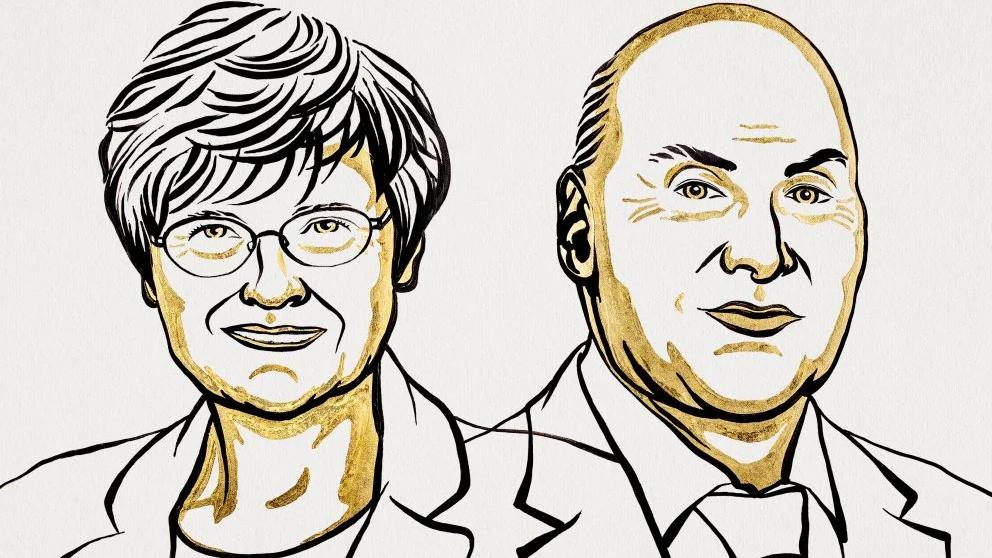For the extremely fast development of a vaccine
Nobel Prize awarded to Covid-19 vaccine pioneers

Last year, many people were expecting the Nobel Prize to go to the developers of the Covid-19 vaccine but it didn't happen. Well, this year, it has.
The basic principle of a vaccines is that it trains the body to produce antibodies against a virus. Up until then, vaccines were made based on the virus itself or parts thereof, which meant that a new vaccine took a relatively long time to develop.
Thanks to tresearch by Katalin Karikó, from Hungary, Drew Weissman, from the USA, that process can now be done much faster, which explains why Covid-19 vaccines were introduced at record speed.
1990s
Karikó and Weissman met at the University of Pennsylvania in the 1990s. Together, they delved into mRNA, which acts like a messenger between the DNA and the rest of the cell. Theory dictated that it should be possible to use synthetic mRNA to "tell" the body to react to a new virus. But there was a problem: synthetic mRNA was seen as a foreign substance, and rejected as a result.
Karikó and Weissman then learned to understand why mRNA functions differently in a body cell than in a test tube. Their first groundbreaking article was published in 2005, fifteen years before the Covid pandemic. Their insights made the elaboration of mRNA-based vaccines possible.
Last year, Katalin Karikó was given an honorary doctorate by Radboud University Nijmegen. But there are other researchers who worked on such vaccines. In 2021, the University of Amsterdam presented two of them with an honorary doctorate.
Anti-vaxxers
The Nobel Prize isn’t likely to convince anti-vaxxers that the vaccine is safe after all, the Nobel Prize Committee said in response to questions from a journalist, but perhaps it will make a difference for people who are on the fence about it.
This year’s Nobel Prize amounts to 11 million Swedish krona, the equivalent of around 950,000 euros. Two Dutch nationals won the Nobel Prize in Physiology or Medicine in the past. The first one, Christiaan Eijkman, was awarded the prize in 1929 thanks to his research into vitamins. In 1973, Niko Tinbergen got the prize for his research into the behaviour of social animals such as bees and birds.